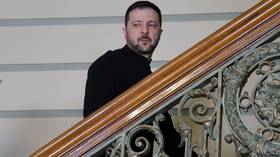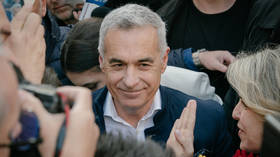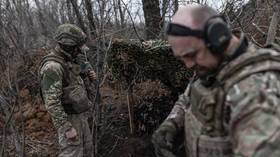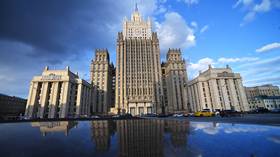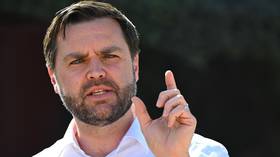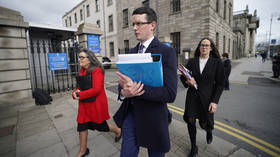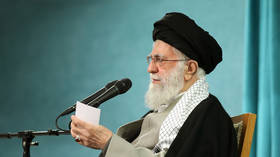UK seeking ‘creative’ means to seize Russian assets
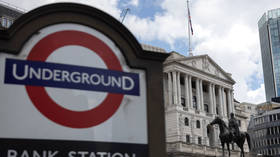
Coming up with a way to “repurpose” frozen Russian assets for rebuilding Ukraine will require “creativity and innovation,” Britain’s Parliament heard during a debate on Tuesday.
“It is our ambition to find a legally workable route to repurpose Russian assets. As yet, no country has found one. We are working with partners to do so,” said the Conservative MP Leo Docherty, parliamentary under-secretary for Foreign, Commonwealth and Development Affairs.
The government needs to be sure of the “safety, robustness and legality of any proposal in this regard,” Docherty added. “If there is no legality, there can be no utility.”
Responding to a question by Labour MP David Lammy, who was puzzled that London has not yet passed a law to confiscate Russian assets frozen last year, Docherty explained that the law passed in May allows the British government to keep the funds and property “immobilized until Russia agrees to pay for the damage it has caused to Ukraine.”
The Tory MP also corrected his colleagues who claimed Canada has already passed a law to confiscate sanctioned Russian property, noting that “our Canadian friends have legislated, but they have not yet found a legally watertight route to seizing those assets.”
Such an unprecedented step is “not legally straightforward,” Docherty argued, and represents “entirely new ground” that requires a “robust legal framework” to survive an international challenge.
London froze Russian state assets valued at £26 billion ($32.1 billion) at the start of the military operation in Ukraine in February 2022, according to estimates from the Bank of Russia. The British government has yet to present a similar estimate to Parliament.
Docherty told MPs that Prime Minister Rishi Sunak’s government will introduce a new mechanism for sanctioned individuals, by which they can request to have their frozen property used for the reconstruction of Ukraine.
However, London has yet to disburse the £2.3 billion obtained from the forced sale of FC Chelsea by Roman Abramovich, to the NGO established to channel it to Kiev. Docherty said the government is engaged in “discussions” with regard to “the focus and the utility of these funds,” and will brief the Parliament when that is resolved.
Moscow has condemned plans to confiscate frozen assets as “theft” and “banditry,” promising to retaliate in kind if the US and its allies move ahead. Critics in the West have also pointed out that the measure would change the very nature of sanctions as a policy tool and undermine the credibility of property rights.




